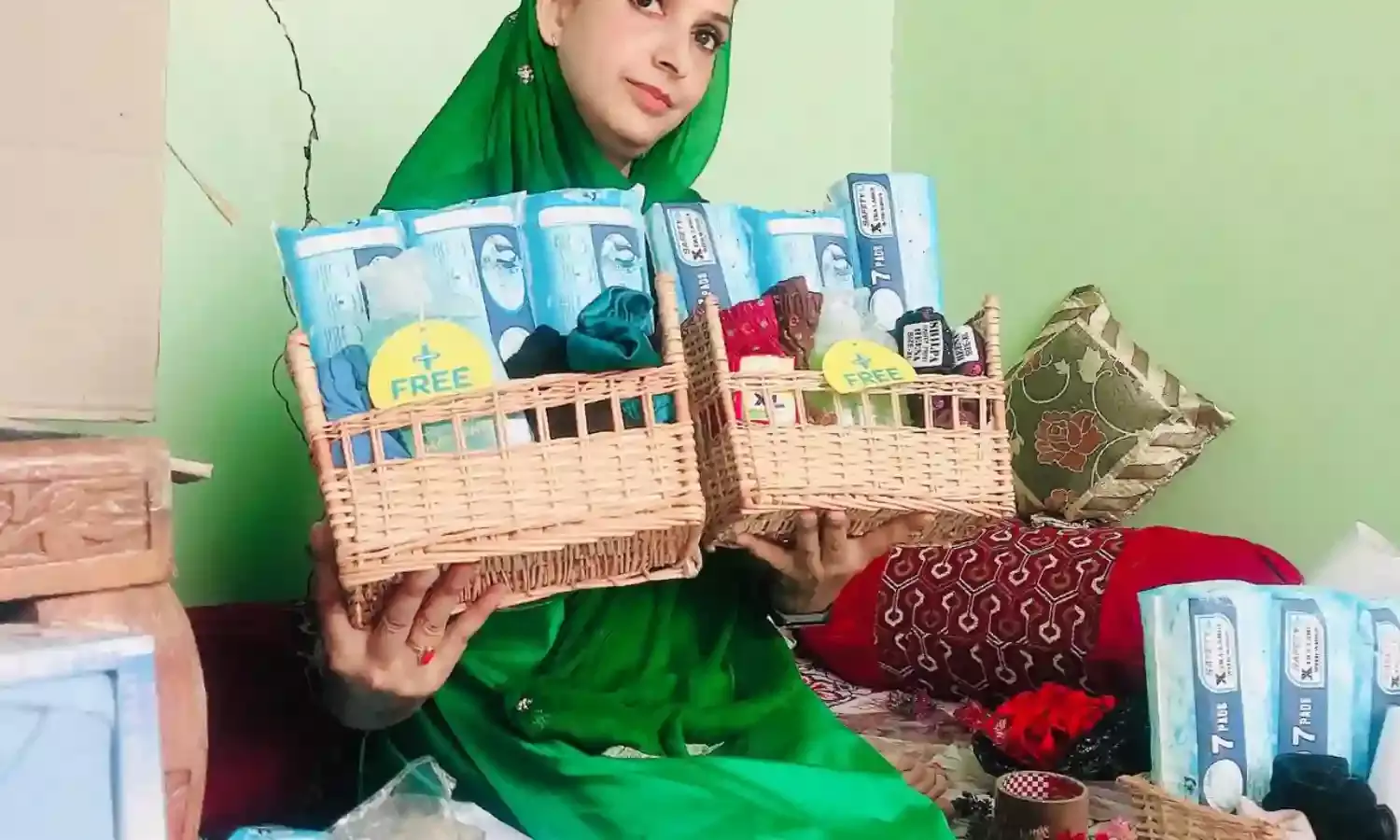‘Pad Woman’ Distributes Free Sanitary Napkins to Kashmiris in Need
Each kit has napkins, antispasmodics, handwash, underwear and sanitiser

SRINAGAR: 28 year old Irfana Zargar of Nowshera, Srinagar has become a household name these days. Amid the Covid-19 lockdown Zargar has been providing free sanitary napkins to hundreds of women across Kashmir, besides supplementing 15 public toilets in Srinagar with sanitary kits.
She says she has been working for the cause since 2014, when her father Ghulam Hassan Zargar died of a heart attack. Neither part of an NGO nor funded by any group, she says she pays for the pads from her pocket, despite “not having a handsome salary.”
“I have been contributing the necessary sanitary items to poor and needy girls for the past six years. During the Covid-19 lockdown the demand for sanitary items increased and some parents even rushed to my house to get sanitary pads for their daughters.”
Zargar says she has distributed nearly 10,000 sanitary pads in the last five months. Her initiative, Eva Safety Door, aims to provide free sanitary kits to the needy in public toilets across Srinagar, and it has won her huge appreciation.
“Eva means women, and safety door refers to the fact that this is a door that opens to their safety,” she explains.
Each menstrual kit contains sanitary napkins, antispasmodics and handwash. It also has underwear and sanitiser.
Working on a consolidated basis with the Srinagar Municipal Corporation, Zargar spends half her salary on purchasing sanitary items and distributing them among women in Srinagar city. She says her next goal is to reach the villages of Kashmir.
“For the past six years I have been doing this work in Srinagar only, but now I am considering opening my wings and reaching the far flung areas of Kashmir, where women are still using a reused cloth rather than sanitary napkins,” says Zargar.
During the ongoing year-long lockdown since August 2019 when the Indian government scrapped Article 370, the special status of the erstwhile state, Zargar says the majority of women who approached her have been single mothers, widows and women with disabilities, who had a meagre income.
“Their financial problems doubled due to the pandemic as their source of income stopped,” she explains.
Kashmir has witnessed two back-to-back lockdowns in the past year, with distressing effects on the lives of poor people, and many shopkeepers, vendors and transporters. The pandemic has left them jobless.
“Many people are doing social work, but this is the best charity I have found so far. At first I was doing this work secretly, but after some years somehow it came into the media and more people started joining my cause. I welcome those who want to join in or contribute. I am aiming to cover public washrooms in the whole of Srinagar,” says Zargar.
Since the lockdowns, due to the lack of adequate public transport provision, she is facing a lot of difficulty reaching out to the needy.
“I have accounts on social media for outreach and the majority of requests come through there. I receive calls, messages from the needy and after receiving the request, I go to the spot and drop the napkin at their doorstep,” says Zargar with a smile.
Irfana Zargar believes that period related issues are still considered taboo in Kashmir, a situation “unhealthy for any society”.
Her personal journey has been a tough one too. She was 21 years old when her father died. “My dad was the first man in my life who would get pads for me from the shops. He also wanted to see me helping people. So I chose this path which I found very necessary,” she explains.
Before she got the idea to distribute sanitary napkins among women, on every Sunday she used to clean the local public washrooms.
She believes there is a need to create wide awareness about the subject of menstruation. “The stigma must be thrown out and the belief that menstruating women are ‘unclean’ should end.”
In the Kashmir Valley, periods are still not discussed openly. Mothers secretly discuss it with their daughters at homes, but there is no discussion in schools or colleges about girls’ and women’s health and well-being.
In India an estimated 120 million adolescents get periods severe enough to affect their daily chores. Only 36% of Indian women report using sanitary napkins. Because of misogynist stigmas, an estimated 23 million girls are forced to stop going to school when they get their period.
Irfan Amin Malik is a journalist based in Kashmir



